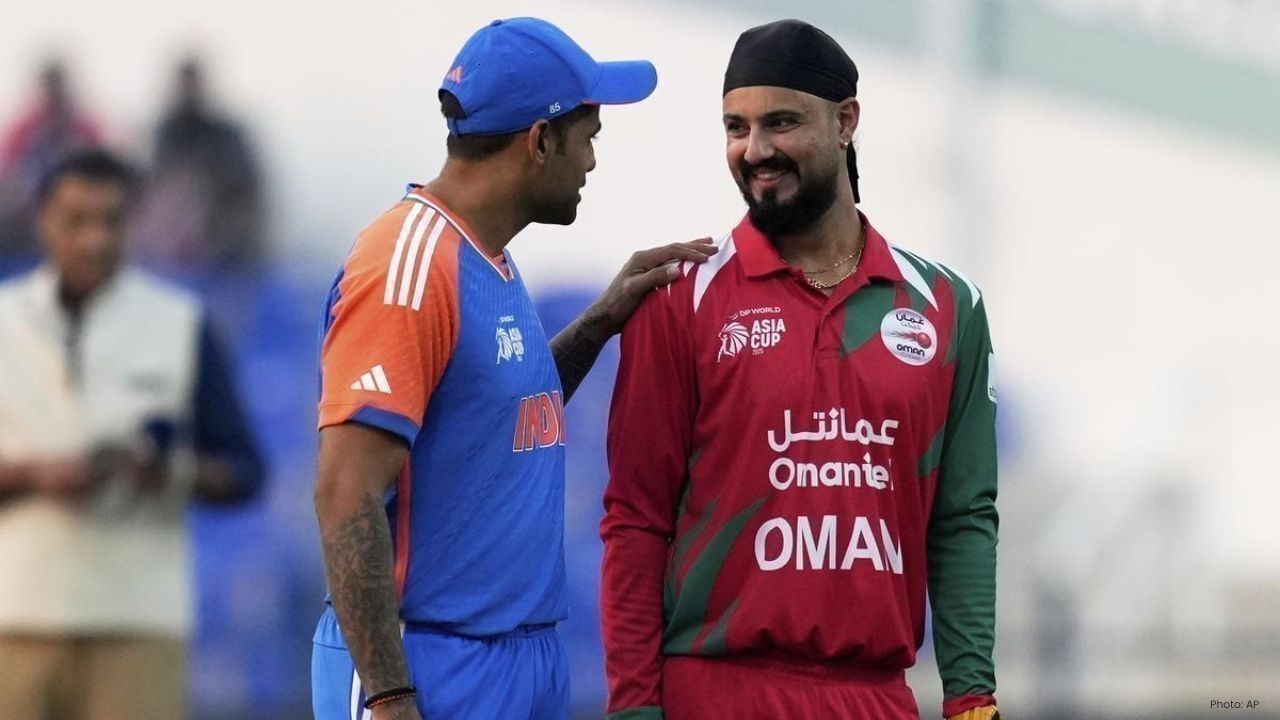
Post by : Anish
Photo: PTI
Zubeen Garg was more than a singer: he was a cultural phenomenon. Born Zubeen Borthakur on November 18, 1972, in Jorhat, Assam, he came from humble but musical roots. Even as a child, he was surrounded by music—his mother was a classical singer, and young Zubeen absorbed folk, classical, and popular melodies from his environment. Those early influences shaped a career that would stretch over three decades, in which he became one of the most versatile and beloved musical voices India has produced.
As a youth, Garg performed local folk songs, learned musical instruments, and took part in local cultural events. He started recording early and released his first Assamese album, Anamika, in 1992. Though still young, it showed signs of what would become his hallmark: blending folk traditions with modern instruments and production, so that the old and new could coexist.
He moved to Guwahati to follow his passion for music, even though he had enrolled in college. He ultimately chose to leave formal education to devote himself fully to music—a decision many saw as risky, but it speaks to his conviction. Later, his body of work and cultural leadership earned him an honorary Doctor of Literature degree, among other formal recognitions.
One of Zubeen Garg’s most remarkable achievements was the sheer volume and diversity of his musical output. He is credited with having sung tens of thousands of songs in dozens of languages and dialects. Assamese, Bengali, Hindi were among his major channels, but he also sang in Nepali, Tamil, Telugu, Malayalam, Marathi, Odia, many tribal dialects and lesser-known regional tongues. This linguistic reach allowed his music to connect with many communities—each hearing something familiar yet fresh.
Moreover, Garg was not only a vocalist. He played many instruments—tabla, harmonium, guitar, drums, mandolin and more—giving him a toolset to experiment across styles: folk, rock, pop, filmi, classical, and more. He was equally comfortable singing a soulful folk ballad in Assamese as performing a Bollywood playback number.
While already well known in Assam early in his career, Zubeen’s national breakthrough came with the song “Ya Ali” from the film Gangster in 2006. It placed him squarely in the Bollywood map, earning popular acclaim and showing that a singer from the Northeast, steeped in folk traditions, could be embraced in mainstream Indian cinema.
This opened doors—but he never abandoned his roots. Along with Bollywood songs and other playback work, he continued producing Assamese albums, composing for regional films, acting, directing, and generally staying deeply involved in the cultural life of Assam and the Northeast.
Beyond singing, Zubeen worked in the film world. He acted in Assamese cinema and composed soundtracks for Assamese films. Some of his films achieved commercial success in the region. One of his albums or movie soundtracks (depending on the regional industry)—for example, Kanchanjangha—was a blockbuster in Northeast India, not only for its box-office numbers but for its music. His composition for that film (the songs) were widely praised and remain part of the region’s popular soundscape.
He also directed films, produced music, and took part in television serials. His creative involvement in multiple aspects of filmmaking meant that he could influence how music and visuals came together—often ensuring that Assamese culture and language were front and center.
Zubeen Garg became something of a bridge between Northeast India and the rest of the country. He stood for a regional identity, proudly asserting that Assamese music, Bihu folk, tribal dialects and melodies deserved respect and visibility. He also took public stances on social and political issues relevant to Assam, including disaster relief during floods, cultural preservation, and sometimes controversially, asserting artistic freedom.
He founded or supported philanthropic causes: during floods, charity concerts, and social relief. He mentored young artists, encouraged musical workshops, and pushed for better production quality in regional music—setting a standard that many younger musicians aspired to.
His style influenced successive generations. Many contemporary singers from Assam and the broader Northeast speak of his impact: his ability to mix traditional folk rhythms, melodies with modern production, his emotional singing style, and his willingness to experiment.
Over time his contributions were formally recognized. Among his honors was the honorary doctorate in literature by the University of Science, Technology and Management, Meghalaya in 2024. Such recognitions are evidence not only of popularity, but of respect from peers, institutions, and the cultural community.
He won awards for playback singing, music direction, film work; regional accolades in Assamese film and music industries; awards for the impact of his songs. He was seen as among the highest-earning and most respected artists in Assam, often regarded as one of its greatest voices.
Though much of his work was regional, the reach became global: listeners of Assamese and regional music around the world were touched by his songs; diaspora communities heard him; streaming platforms included his tracks; his Bollywood songs brought him nationwide recognition. Singing in dozens of languages meant many listeners found connections: language, mood, melody.
His songs preserved folk elements (folk lyrics, traditional instruments, rhythmic structures) and married them with modern production, enabling folk traditions to survive and thrive among younger generations who might otherwise drift toward purely commercial pop or music in non-regional languages.
No artist is without flaws and challenges. Zubeen had controversies over time, stood for strong convictions, sometimes made statements that divided opinion. His path was not just showtunes and praise—he faced criticism, public debate. Also, the tension between maintaining authenticity to roots vs pursuing mainstream success is real, and he seemed to navigate it in his own way.
But in the end, perhaps what made Zubeen Garg unique was that he embraced both: he wanted Assamese folk to be heard, but also wanted to experiment, to be heard across borders, to bring his music to many types of audiences without losing what made him Assamese.
He gave voice to a region that often feels under-represented, musically and culturally, in India’s mainstream culture.
He raised the bar for regional music: lyrics, production, style, reach, ambition.
He inspired younger artists to believe that regional art forms can coexist with mainstream success, that singing in one’s dialect, or including folk, doesn't need to be a limitation.
His versatility showed that artists need not be narrowly defined: singer, composer, instrument player, actor, director—he wore many hats.
Zubeen Garg’s journey was one of passion, risk, experimentation, rootedness. His songs are likely to be sung long after, in Assam and beyond. His legacy includes not only the songs themselves but the doors he opened—culturally, linguistically, geographically. For anyone wanting to see how regional music can travel, how identity can be preserved amidst growth, how an artist can stretch across borders of language and style, his life provides many lessons.
This article is based on publicly available information about Zubeen Garg’s life and career up to September 2025. Some details, awards, or song counts may vary by source. The intent is to highlight his contributions, not to provide exhaustive biography.

Financial Wellness for Millennials Easy Smart Habits to Start Today
Learn smart financial habits for millennials to save invest and secure a stable future Start buil

Elon Musk’s xAI Raises $10B, Valued at $200 Billion
Elon Musk’s AI startup xAI secures $10B funding at $200B valuation, joining the ranks of the world’s

Suryakumar Yadav Praises Oman’s Brave Show in Asia Cup 2025
India T20 captain Suryakumar Yadav lauds Oman’s fearless fight in Asia Cup, praises key batters and

Nvidia Invests $5B in Intel What It Means for TSMC & AI Chips
Nvidia’s $5B stake in Intel could reshape AI chip rivalry, easing U.S. pressure on TSMC while boosti

US Vaccine Panel Drops COVID-19 Shot Recommendation
Kennedy-appointed panel declines to endorse COVID-19 vaccines for any age group this autumn, leaving

Meta Eyes $20B Oracle Cloud Deal to Boost AI Power
Meta in talks with Oracle for a $20B multi-year cloud deal, aiming to expand AI capabilities alongsi

Assam’s Icon Zubeen Garg Dies in Singapore Scuba Accident
Zubeen Garg, 52, drowned during a Singapore yacht trip after removing his life jacket. Assam mourns

10 Bridal Lehenga Designs to Set Wedding Fashion Trends in 2025
Explore 10 stunning bridal lehenga designs of 2025 from pastels to metallics perfect to set weddin

Zubeen Garg: Northeast’s Musical Maestro and His Impact on Global Music
Zubeen Garg, the iconic singer, composer and cultural figure from Assam, left a legacy that went far

9 Days 9 Colours of Navratri 2025 Ethnic Outfit Ideas & Styling Tips for a Festive Wardrobe
Discover 9 days 9 colours of Navratri 2025 with ethnic outfit ideas styling tips and festive fash

Trendy Korean Hairstyles for Indian Girls in 2025 Stylish & Easy Hair Ideas
Discover trendy Korean hairstyles for Indian girls in 2025 from soft layers to curtain bangs and st

The Mind Gut Connection How Your Diet Shapes Your Mood and Mental Health
Discover how your diet affects mental health mood and stress Learn tips to keep your gut and mind

Dubai s 2025 Property Outlook Key Trends Prices and Investment Opportunities
Discover Dubai s 2025 property trends price changes rental yields and investment opportunities in

Like Trees Let Us Live to Give A Lesson in Purposeful Living
Discover life lessons from trees on giving purpose and serving others in every season inspiring a

From Street Style to High Fashion How Modest Fashion is Evolving in the UAE
Explore how modest fashion in the UAE evolved from traditional wear to stylish street and high fashi